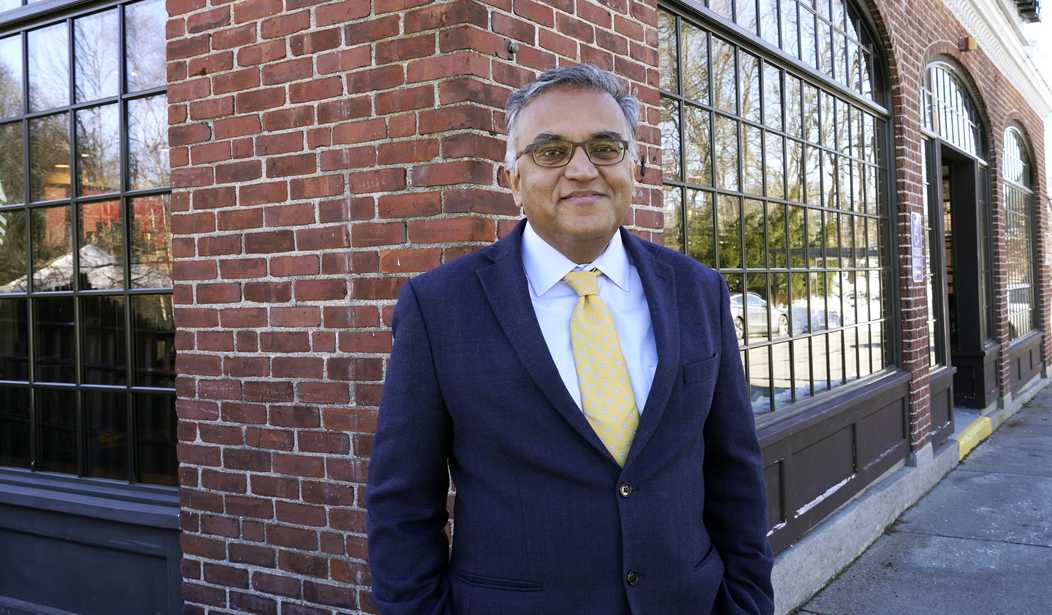Well, I knew ye … twice, in fact, but not too many will going forward. The on-again, off-again authorization for the Johnson & Johnson/Janssen COVID-19 vaccine is now back off again after more concerns over rare blood clotting arose again in the last few weeks. That leaves only the two mRNA vaccines available for initial vaccinations and boosters until other candidates emerge:
The FDA announced it is putting strict restrictions on the use of the Johnson & Johnson COVID vaccine, due to the risk of rare but serious blood clots.
Dr. @ashishkjha says he still believes it’s a “very good vaccine,” but Moderna and Pfizer are safe alternatives. pic.twitter.com/7b1ro3kxCn
— CBS Mornings (@CBSMornings) May 6, 2022
The Food and Drug Administration imposed new restrictions Thursday on the Johnson & Johnson coronavirus vaccine, saying the risk of a rare and life-threatening blood clot syndrome outweighed the benefits of the vaccine for people who are 18 or older and can get another shot, unless they would otherwise remain unvaccinated.
The FDA said only people who are unable to receive other vaccines because they are not accessible or clinically appropriate, or because individuals refused to get a different vaccine, should receive the Johnson & Johnson shot.
The Johnson & Johnson vaccine has been associated with a rare but potentially deadly blood clotting and bleeding syndrome called thrombosis with thrombocytopenia syndrome, or TTS. The condition usually occurs within one to two weeks of vaccination, and a commonly used treatment to address clotting, heparin, can cause additional harm.
“This is not a new safety signal — it is based on updated information showing that it is a persistent safety signal,” Peter Marks, the FDA’s top vaccine official, said in an interview. He said other, safer vaccines that can be used to inoculate people against the coronavirus.
Ashish Jha concedes this same point in his CBS interview above. None of this is new data; the clotting issue is extraordinarily rare but has been known for quite a long time. The same issue pushed the FDA to suspend the J&J/Janssen for several weeks last year too, a decision which got reversed when (a) its exceedingly rare quality became widely known, and (b) the impact of the decision rattled consumer confidence in all COVID-19 vaccines.
How rare? This rare:
An updated analysis of safety data through March 18 found that there have been 60 confirmed cases of the blood-clotting syndrome, including nine that resulted in death. Even with quick treatment, vaccine recipients can rapidly worsen, with long-term health consequences.
The FDA said there were 3.23 cases of the clotting syndrome per million doses of vaccine administered and 0.48 deaths per million doses of vaccine administered.
Over 18.7 million doses of J&J/Janssen have been injected in the US. A different form of blood clotting can result from COVID-19 at much higher rates, which is why the FDA decided last year to give the green light again to using this vaccine.
So what changed? Likely the Omicron wave made the J&J/Janssen vaccine superfluous. Slightly over three-quarters of all American adults are fully vaccinated, and 90% of all seniors, according to CDC data. Half of all adults have been boosted at least once, and 69% of all seniors have been boosted. Overlay the near-universal exposure of Omicron on those numbers, and suddenly we have more luxury to exclude a vaccine than we did a year ago.
Plus, other options may come into the market soon. The FDA can now take its time with other candidates, such as the long-awaited non-mRNA Novavax, which in February applied for its own emergency-use authorization in the US. Last week, the FDA announced that it expects to have a decision on Novavax’ candidate next month. J&J/Janssen has become expendable in the US, although presumably it will still be put to use in developing countries where refrigeration remains an issue.
One has to wonder just how much of a market remains for Novavax in the US, though. We’ve gotten to a stage where vaccination is likely saturated; everyone who wants or even grudgingly agrees to a shot likely already has one. After the FDA’s pas de doops on J&J/Janssen, any skeptics won’t be wooed with a brand new vaccine that’s only gone through an EUA. The FDA blessing probably helps with getting access in other countries.
The FDA’s toggle switch change hadn’t made its way into all the nooks and crannies of the media by yesterday, though. You’d think that Twitter employees would have wanted to start scaling down this kind of behavior, given what’s coming. It does, however, highlight once more the absurdity of “disinformation governance” in a free-speech system.
It’s almost as if corporate media gets special treatment on social media. https://t.co/Z09KSPK0Qf
— Benny Johnson (@bennyjohnson) May 5, 2022








Join the conversation as a VIP Member